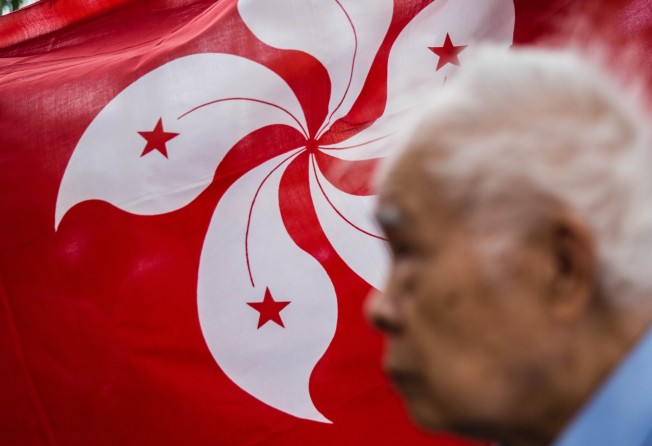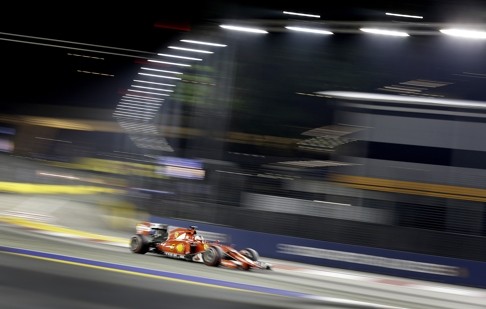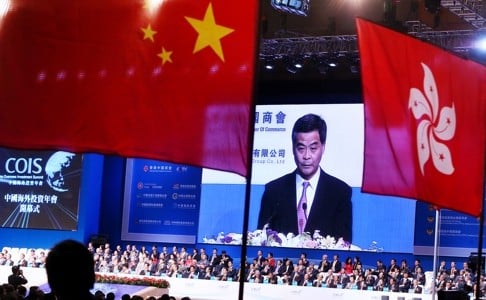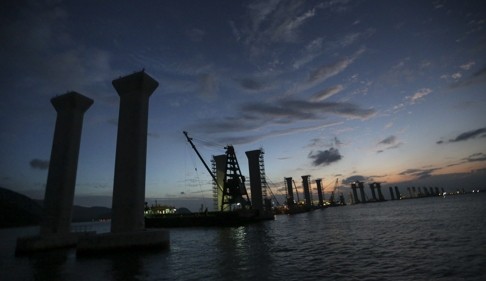Surely it’s not unreasonable to expect Beijing to respect Hong Kong’s history and identity
Philip Bowring says if China could see Hong Kong as a global hub with its own rich identity – as Singapore has become – it would have less to worry about from so-called ‘nativists’ who only seek an economic and social focus that goes beyond the mainland

Identity matters, Mr Chief Executive. The late Singapore prime minister, Lee Kuan Yew, is much admired in China and Hong Kong, not always for the right reasons. But Lee’s one incontrovertible and most important achievement was to foster Singapore’s national identity after its break with Malaysia in 1965.
This included efforts to break down racial barriers, induce the Chinese population to shift from multiple dialects to Mandarin, and to use the likes of Singapore Airlines as a symbol of competence and a reminder of Singapore’s raison d’être as an international crossroads. As wealth grew, it included spending on projects such as art galleries and the night-time Formula 1 race intended to raise its international profile. It consciously sought to be seen in the van of global progress in crucial, if mundane, issues like traffic and water management.

Singapore has performed no better or worse than Hong Kong in terms of per capita growth over the past 45 years but there is now a striking difference between a Singapore where both national consciousness and engagement with the world are encouraged and Hong Kong, where identity is being positively discouraged and engagement with the mainland urged almost exclusively.
Those who wish to sustain Hong Kong’s identity and focus its economy and society on engaging with the region and the world are dismissed as “nativists”. Government officials, and the many hangers-on to the coattails of the liaison office, spout nonsense about Hong Kong’s future being in closer integration with the Pearl River Delta. Imagine if Singapore officials were to proclaim the state’s future lay mainly with integrating with Indonesia and Malaysia! Or insist on the use of Malay (Singapore’s national language) rather than Chinese or English.

Hong Kong had no choice of sovereignty but has a reasonable expectation that its history and identity is respected giving it the right to flourish as it chooses in any way not specifically threatening national security
Chief Executive Leung Chun-ying is a kind of anti-Lee Kuan Yew, one who never speaks up for Hong Kong identity and never appears to speak from the heart, just mouthing lines fed to him by his minders. Huge numbers of Hongkongers resent this but feel their own short-term business, professional or civil service interests preclude overt opposition, instead investing in property and education overseas and keeping their foreign residence rights handy.
Hong Kong’s history is as separate from that of the mainland as Singapore’s is from the Malay state of Johor from which it was detached by the British in 1819. Johor itself was part of the Lingga-Riau sultanate, now part of Indonesia. Neither Indonesia nor Malaysia is looking to regain sovereignty.
Hong Kong had no choice of sovereignty but has a reasonable expectation that its history and identity is respected, giving it the right to flourish as it chooses in any way not specifically threatening national security. Hong Kong people know their limits.
Nor is China so fragile. Take the use of Cantonese: Guangdong has been part of China for more than 2,000 years yet its separate language has also flourished. The more Beijing tries to belittle Hong Kong’s identity, the more it provokes antagonism – as its statements in mid-2014, which turned Occupy from a fringe to a mass movement, showed.

There is bewilderment as well as outrage in Beijing that Singapore allows US spy planes to use it to monitor China’s empire-building in the waters off the Philippines and Vietnam. Acolytes darkly warn that Singapore will have to choose sooner or later between the US and China. But the probability eludes them that Singapore also needs to stay friends with its immediate neighbours, the 600 million (generic) Malays and Vietnamese threatened by China’s claims on their adjacent seas. Singapore is also closer to Chennai than to Guangzhou.
If a Communist-Party-ruled China cannot better understand Hong Kong’s past and present identity, it has scant chance of reconciling its own interests with those of its increasingly nervous Asian neighbours.
Philip Bowring is a Hong Kong-based journalist and commentator